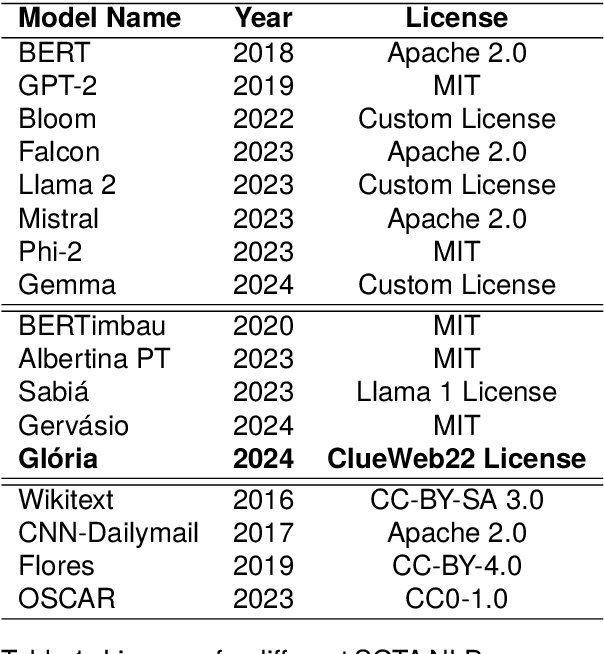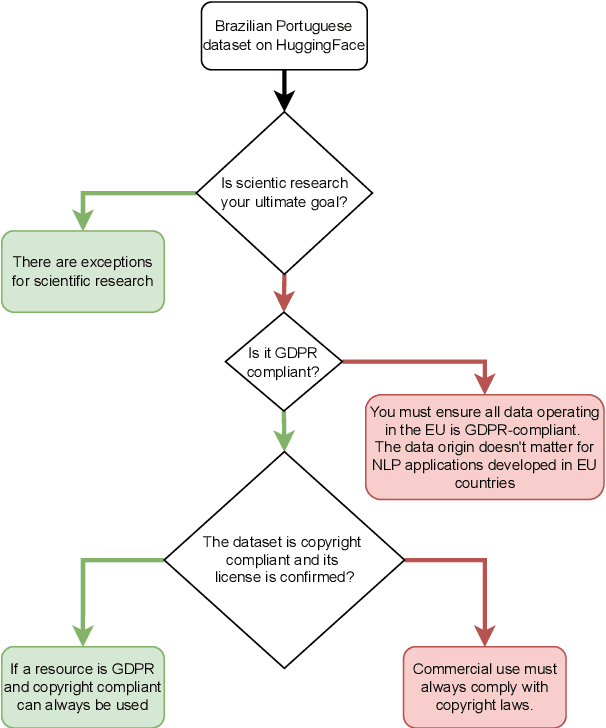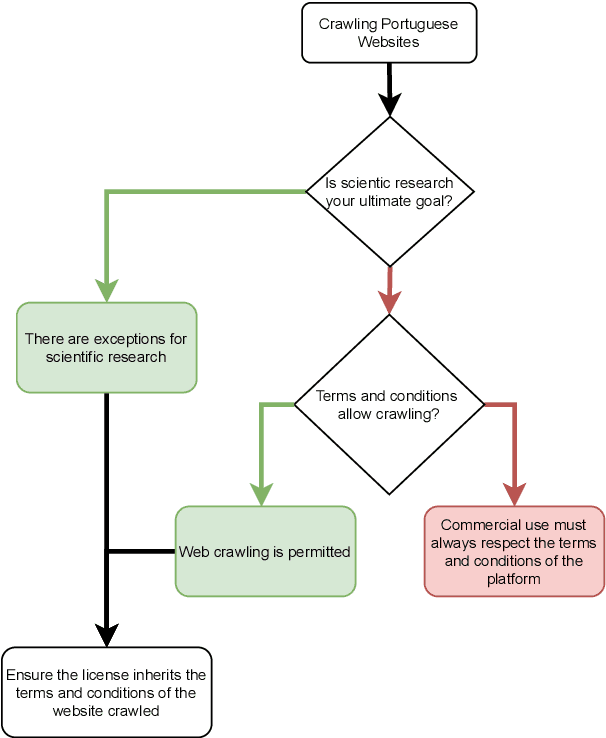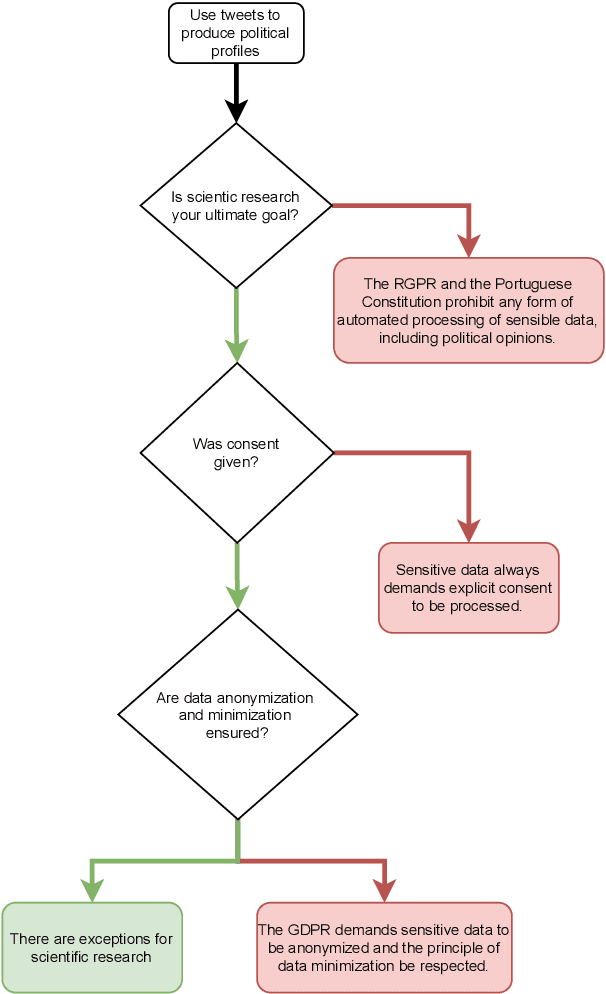A Legal Framework for Natural Language Processing Model Training in Portugal
Paper and Code
May 01, 2024



Recent advances in deep learning have promoted the advent of many computational systems capable of performing intelligent actions that, until then, were restricted to the human intellect. In the particular case of human languages, these advances allowed the introduction of applications like ChatGPT that are capable of generating coherent text without being explicitly programmed to do so. Instead, these models use large volumes of textual data to learn meaningful representations of human languages. Associated with these advances, concerns about copyright and data privacy infringements caused by these applications have emerged. Despite these concerns, the pace at which new natural language processing applications continued to be developed largely outperformed the introduction of new regulations. Today, communication barriers between legal experts and computer scientists motivate many unintentional legal infringements during the development of such applications. In this paper, a multidisciplinary team intends to bridge this communication gap and promote more compliant Portuguese NLP research by presenting a series of everyday NLP use cases, while highlighting the Portuguese legislation that may arise during its development.
 Add to Chrome
Add to Chrome Add to Firefox
Add to Firefox Add to Edge
Add to Edge